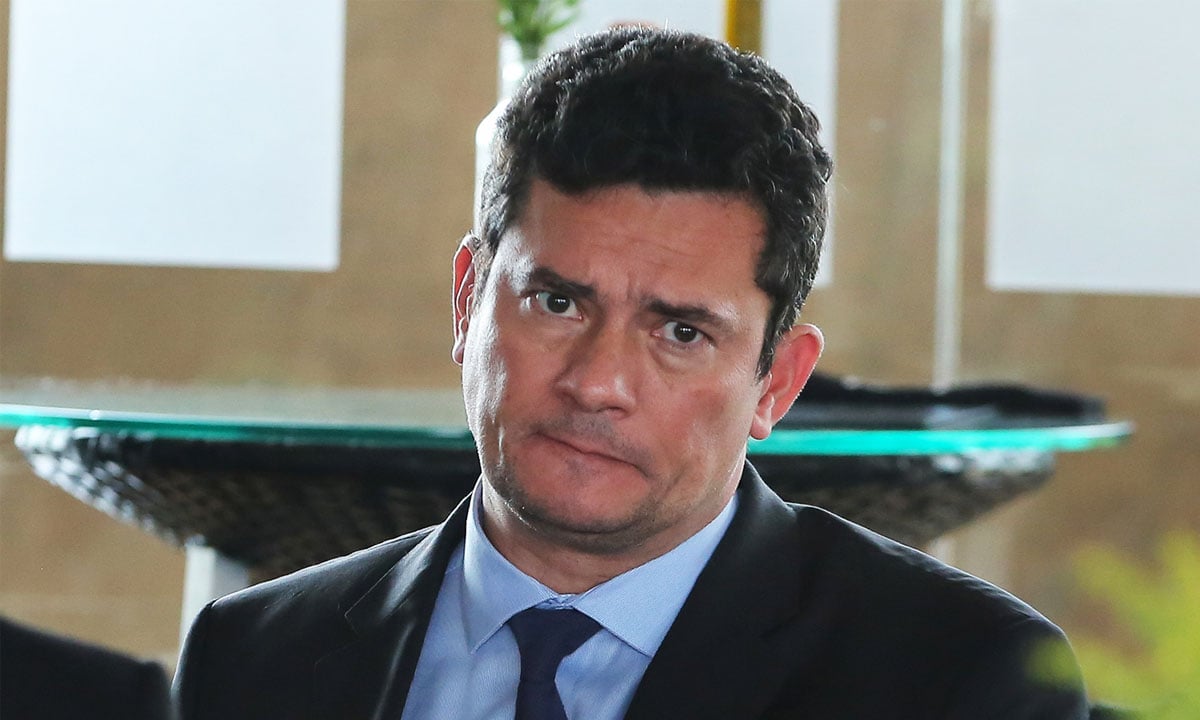Glenn Greenwald
Sergio Moro is far more than a corrupt judge
It is not hyperbole to say that Moro is the greatest enemy to Brazilian democracy since the country emerged from dictatorship in 1985

The STF on Wednesday officially decreed what has long been obvious: that Sergio Moro acted unethically and abused his judicial power. Moro did so, concluded the court’s majority, not just in any case but while presiding over the most consequential criminal trial in decades: the conviction of Lula da Silva, which resulted in eighteen months of unjust imprisonment for the former president.
But this should not be regarded as a mere “stain” on Moro’s legacy: as if it is just one isolated mistake in an otherwise-noble career. Nor should Moro be viewed merely as a corrupt judge. Sergio Moro is much more than that.
It is not hyperbole to say that Moro is the greatest enemy to Brazilian democracy since the country emerged from dictatorship in 1985. The former judge’s misconduct was not the result of negligence or incompetence. It was a sustained plot to override the will of voters and the foundations of democracy through judicial tyranny, by which the right of 220 million people to be self-governed was replaced by the ideological will of a single corrupt judge.
That Moro’s corruption radically altered the 2018 election is self-evident. Though we will never know for certain what the outcome of the race would have been had Lula not been barred from running, we do know for certain that all polls showed Lula as the overwhelming favorite to win when Moro quickly and corruptly found him guilty. What we can say for certain is that Moro’s judicial misconduct, now made official by the STF, robbed Brazilians of the choice they had the right to make for themselves: whether to be governed by Jair Bolsonaro or Lula da Silva.
Moro’s judicial corruption delegitimized not only the 2018 presidential election but also the 2014 election. The winner of that election, Dilma Rousseff, was impeached and removed from office eighteen months after Brazilians chose her to be their president. Moro’s role in her impeachment was just as central, and just as corrupt, as it was for Bolsonaro’s 2018 victory.
As former Câmara President Rodrigo Maia said in a Jovem Pan interview in 2019, the idea of impeachment Dilma over pedaladas was confined to a small right-wing fringe, largely driven by an inability to accept defeat. Impeachment became a possibility for only one reason: Moro illegally tape recorded Dilma’s private conversations with Lula, and then — violating his own protocols — caused those conversations to be leaked to the press. Led by Jornal Nacional, which humiliated itself by having its two news anchors re-enacted the entire conversations as if they were novela stars, the anti-PT media exploited Moro’s unethical acts to enliven impeachment and remove Dilma from office.
Moro’s corrupt interference in Brazilian politics is so continuous and ample that it is easy to forget some of his worst transgressions: weaponizing the delação do ex-ministro Antonio Palocci prior the 2018 election, protecting tucanos while pursuing petistas for the same conduct, accepting a massive promotion from Bolsonaro after abusing his power to pave the way for his path to victory. Moro’s corruption is far more continuous than sporadic: the list of his unethical acts are too numerous to list let alone remember.
It is not an exaggeration to say that virtually every significant political event in Brazil from 2016 through today was the result not of democratic processes or self-governance, but the corrupt and ideologically driven crusade of one narcissistic, messianic, unelected low-level judge from Curitibia. Sergio Moro did not wear the same uniform as the Brazilian generals who overturned democracy in 1964 and dictatorially ruled the country for the next twenty-one years, but his contempt for democracy and his success in subverting it was at least equal to theirs.
It is a perversion of the justice system that the heroic Walter Delgatti, who exposed Moro’s corruption, is threatened with prison while the corrupt judge prances around tony neighborhoods of Washington, D.C. But history will not be nearly as kind to Moro as waiters in the upscale Georgetown restaurants and shops to which he has escaped.
Sergio Moro is not merely a disgraced judge but the prime villain in Brazilian politics and the leading enemy of basic democratic principles. He single-handedly ruined two presidential elections, unjustly imprisoned Lula and many others, and abused the power he acquired for purely selfish and self-aggrandizing ends. It may be legally inappropriate to call him a “criminal” in the strict sense of that word. But everyone of any ideology should have no trouble recognizing him as the single greatest menace to Brazilian democracy in years if not decades.
Apoie o jornalismo que chama as coisas pelo nome
Os Brasis divididos pelo bolsonarismo vivem, pensam e se informam em universos paralelos. A vitória de Lula nos dá, finalmente, perspectivas de retomada da vida em um país minimamente normal. Essa reconstrução, porém, será difícil e demorada. E seu apoio, leitor, é ainda mais fundamental.
Portanto, se você é daqueles brasileiros que ainda valorizam e acreditam no bom jornalismo, ajude CartaCapital a seguir lutando. Contribua com o quanto puder.



